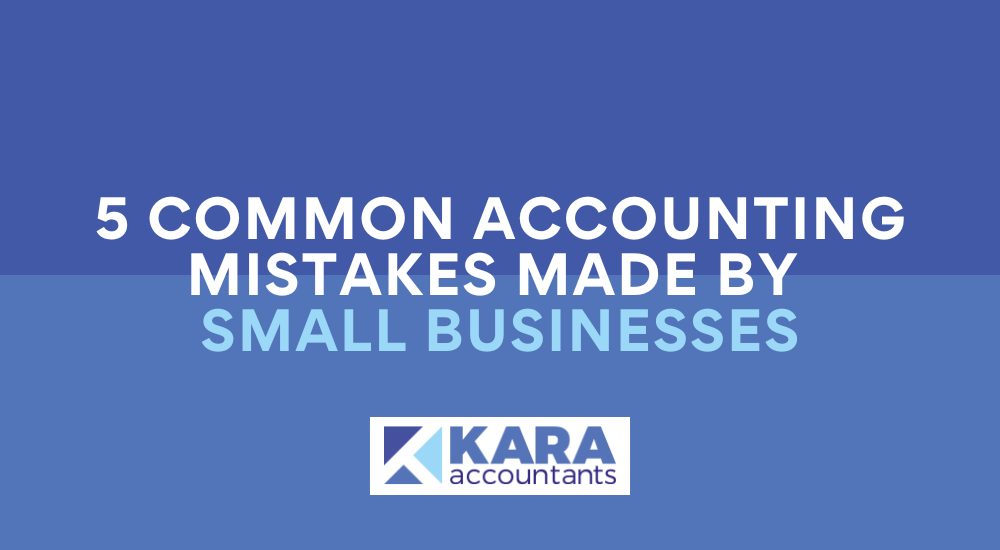
5 Common Accounting Mistakes Made by Small Businesses
In the fast-paced world of entrepreneurship, managing finances effectively is crucial for the success and sustainability of small businesses. However, navigating the complexities of accounting can be daunting, especially for those without a background in finance. In this blog post, we’ll explore five common accounting mistakes that small businesses often encounter and provide practical tips on how to avoid them.
Neglecting Regular Bookkeeping:
One of the most common accounting mistakes small businesses make is neglecting regular bookkeeping tasks. Failing to keep accurate and up-to-date financial records can lead to oversights, errors, and missed opportunities for financial optimisation. To avoid this mistake, establish a consistent schedule for bookkeeping activities such as recording transactions, reconciling accounts, and generating financial reports. Consider utilising accounting software to streamline these processes and ensure accuracy.
Mixing Personal and Business Finances:
Another common pitfall for small business owners is mixing personal and business finances. While it may seem convenient to use the same bank account or credit card for both personal and business expenses, this can create confusion and complicate accounting tasks. To avoid this mistake, open separate bank accounts and credit cards specifically for your business. This will not only simplify record-keeping but also provide clearer insights into your business’s financial health.
Misclassifying Expenses:
Misclassifying expenses is a common accounting error that can distort financial reports and mislead decision-making. It’s essential to accurately categorise expenses according to their nature and purpose to ensure compliance with tax regulations and maintain financial transparency. To avoid this mistake, familiarise yourself with commonly used expense categories and consult with an accountant if you’re unsure about how to classify certain expenses. Implementing a standardised expense tracking system can also help prevent misclassifications.
Overlooking Tax Obligations:
Small businesses often overlook their tax obligations, leading to penalties, fines, and unnecessary stress during tax season. Whether it’s income tax, sales tax, or payroll tax, it’s essential to stay informed about your tax liabilities and comply with relevant regulations. To avoid this mistake, maintain accurate records of income and expenses throughout the year, and set aside funds for tax payments. Consider working with a tax professional or accountant to ensure compliance and maximise tax-saving opportunities.
Failing to Plan for Growth:
Finally, many small businesses neglect to plan for future growth and expansion, which can have significant implications for their financial stability and success. Whether it’s inadequate cash flow management, lack of budgeting, or failure to invest strategically, failing to plan for growth can hinder long-term sustainability. To avoid this mistake, develop a comprehensive financial plan that outlines your business goals, identifies potential risks, and allocates resources effectively. Regularly review and adjust your financial plan to adapt to changing market conditions and opportunities for growth.
By avoiding these common accounting mistakes and implementing sound financial practices, small businesses can improve their financial health, mitigate risks, and position themselves for long-term success. Remember, proactive financial management is key to navigating the challenges of entrepreneurship and achieving your business objectives. If you need guidance or support in managing your finances, don’t hesitate to contact us for an accountant or financial advisor for assistance.

This Post Has 0 Comments